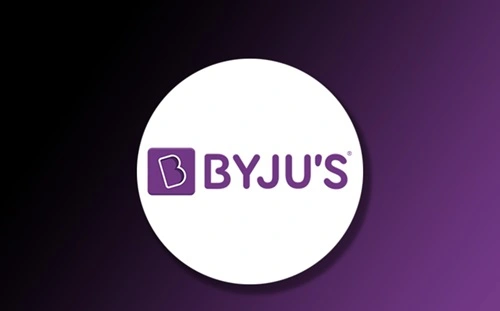Byju’s, founded in 2011 by Byju Raveendran and Divya Gokulnath, has become the world’s leading edtech company and India’s most valuable startup. With its headquarters in Bengaluru, Byju’s started as a platform for test preparation and has evolved into a comprehensive online learning platform catering to students across K-12 education, competitive exams, and professional skill development. Byju’s combines engaging content, advanced technology, and personalized learning to make education accessible and impactful.
This article delves into Byju’s business model, revenue streams, and strategies that have helped it dominate the edtech space globally.
Overview of Byju’s Business Model

Byju’s operates on a B2C (Business-to-Consumer) and B2B (Business-to-Business) hybrid model. It primarily targets individual learners while also offering solutions to educational institutions and corporations. Its business model relies heavily on leveraging technology and interactive content to deliver personalized learning experiences.
Key Features of Byju’s Business Model:
- Subscription-Based Learning:
- Byju’s earns revenue through paid subscriptions, offering premium learning content and tools.
- Freemium Model:
- The platform provides free access to basic content, with advanced features available through subscription plans.
- Global Reach:
- Byju’s caters to learners in over 120 countries, offering localized content in multiple languages.
- Acquisitions and Diversification:
- Byju’s has acquired companies like WhiteHat Jr, Aakash Educational Services, Osmo, and Great Learning to diversify its offerings.
How Does Byju’s Earn Money?
Byju’s generates revenue through various channels, leveraging its extensive product portfolio, innovative delivery methods, and strategic partnerships. Here’s how Byju’s earns money:
a. Subscription Revenue
- Core Revenue Driver:
- Byju’s offers paid subscriptions for its learning programs. These subscriptions include:
- K-12 Education: Animated videos, quizzes, and interactive lessons for school students.
- Test Preparation: Courses for competitive exams like JEE, NEET, CAT, UPSC, GRE, GMAT, and more.
- Skill Development: Professional certification programs and upskilling courses through platforms like Great Learning.
- Subscription fees vary based on the course and duration, ranging from ₹5,000 to ₹100,000 per year.
- Byju’s offers paid subscriptions for its learning programs. These subscriptions include:
b. Aakash Institute Integration
- Byju’s generates significant revenue through Aakash Educational Services, a subsidiary specializing in offline and online coaching for competitive exams like NEET and JEE.
- The hybrid model combines Aakash’s physical infrastructure with Byju’s digital learning platform, boosting enrollments and revenue.
c. WhiteHat Jr
- Byju’s acquired WhiteHat Jr in 2020, offering live coding classes and STEM education for children.
- Revenue is earned through paid coding and mathematics courses, targeting students globally.
d. Freemium Model Upselling
- Byju’s attracts users with free content, such as demo videos and quizzes. Once users engage with the free offerings, the platform upsells its premium subscriptions through personalized recommendations and follow-ups by the sales team.
e. Licensing and Content Partnerships
- Byju’s licenses its educational content and technology to schools, colleges, and other edtech companies.
- These partnerships enable Byju’s to generate revenue by serving as a content-as-a-service (CaaS) provider.
f. Advertising Revenue
- Byju’s monetizes its platforms by offering advertising opportunities to brands, particularly those in the education, technology, and FMCG sectors.
g. Live Classes
- Byju’s offers live classes as part of its premium plans, where students can interact with teachers in real-time. These live classes are tailored for exam preparation and concept clearing, and they command higher subscription fees.
h. Hardware Sales
- Byju’s provides learning kits and hardware such as tablets pre-loaded with educational content, bundled with subscription plans. This model enhances user engagement and generates additional revenue.
i. Corporate and Institutional Sales
- Byju’s collaborates with corporations and educational institutions to offer learning programs for employee upskilling and student enrichment. These corporate partnerships generate bulk revenue.
j. International Markets
- Byju’s earns revenue from its global operations, particularly in markets like the US, UK, Middle East, and Southeast Asia. The company tailors its content to meet local educational standards and preferences.
k. Acquisitions Driving Revenue
- Byju’s has strategically acquired companies to tap into new markets and segments. Key acquisitions include:
- Great Learning: Focused on higher education and professional certification.
- Osmo: An interactive learning platform for younger children.
- Epic: A US-based digital reading platform for kids.
- These acquisitions contribute to Byju’s revenue through diversified offerings and expanded user bases.
Why Byju’s Model Works
Byju’s success lies in its ability to blend engaging content, advanced technology, and a strong sales network. Here’s why its business model works:
a. Engaging and Interactive Content
- Byju’s uses animation, gamification, and AI-driven personalization to make learning engaging and effective for students.
b. Strong Sales and Marketing
- Byju’s aggressive sales strategy involves follow-ups with potential customers through demo classes and phone consultations, converting free users into paying subscribers.
c. Diversified Offerings
- By catering to learners of all ages and educational levels, Byju’s minimizes dependence on any single revenue stream.
d. Global Expansion
- By targeting international markets and offering localized content, Byju’s has diversified its geographic revenue base.
e. Strategic Acquisitions
- Byju’s acquisitions have allowed it to expand into new segments like professional learning (Great Learning), early childhood education (Osmo), and STEM (WhiteHat Jr).
Financial Performance
Byju’s has witnessed tremendous growth in terms of revenue, user base, and valuation.
Revenue Growth
- Byju’s reported revenues exceeding ₹10,000 crores in FY 2023, driven by subscription growth, acquisitions, and global operations.
Funding and Valuation
- The company has raised over $5.5 billion from investors like General Atlantic, Sequoia Capital, and Tencent.
- As of 2024, Byju’s is valued at over $22 billion, making it one of the world’s most valuable edtech companies.
User Base
- Byju’s serves over 150 million registered learners, with more than 7 million paying subscribers.
Challenges and Opportunities
Challenges
- High Customer Acquisition Costs:
- Aggressive sales and marketing efforts lead to high costs, impacting profitability.
- Retention Issues:
- Retaining long-term subscribers in a competitive market is challenging.
- Regulatory Oversight:
- Edtech regulations in India and globally may affect Byju’s aggressive expansion strategies.
Opportunities
- Tier 2 and Tier 3 Cities:
- Expanding into smaller towns and rural areas can unlock significant growth.
- Corporate Partnerships:
- Collaborating with businesses for upskilling and reskilling initiatives offers new revenue streams.
- Hybrid Learning:
- Combining online and offline learning through Aakash centers and other acquisitions can attract a wider audience.
- International Growth:
- Scaling operations in emerging markets like Southeast Asia, Africa, and Latin America can drive further revenue growth.
Future Prospects
Byju’s is poised to continue its dominance in the edtech space by focusing on:
- Expanding its hybrid learning model through Aakash and other offline channels.
- Scaling its professional and skill development programs globally.
- Increasing penetration in underserved markets through localized and affordable solutions.
- Leveraging AI and analytics to enhance personalization and engagement.
Conclusion
Byju’s business model is a testament to the potential of technology in revolutionizing education. By combining innovative content, aggressive marketing, and strategic acquisitions, Byju’s has built a scalable and profitable model that caters to diverse learning needs. As it continues to expand globally and diversify its offerings, Byju’s is well-positioned to remain a leader in the dynamic and rapidly evolving edtech industry.

